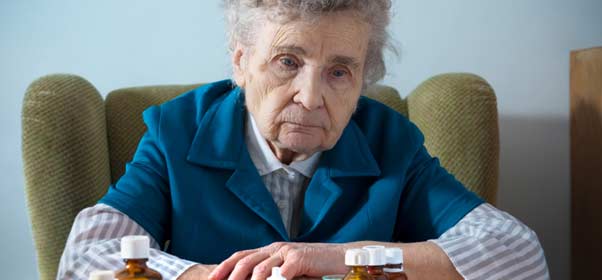Maintaining an active and healthy lifestyle, with exercise and lots of interests, can decrease the effects of aging. Still, memory does decline with age, although recall is usually affected more than recognition. (In other words, the person recognizes the face of a distant acquaintance, but is unable to recall the name.) People tend to exaggerate the amount of their memory loss if they are asked, reporting losses of 50 to 80 per cent when their performance is actually much less impaired. Older people are also slower at problem solving, and require more repetition to learn. Fortunately, they have a wealth of knowledge, experience and wisdom that far outweighs these limitations.
When someone’s first episodes of depression occur late in life, the chance of developing dementia is higher than in people who have had recurrent depressive illness throughout their lives. (In dementia there is a permanent, worsening loss of nerve cells, so that intelligence and memory continue to deteriorate.) Ten per cent of people over sixty-five and 50 per cent of people in nursing homes have dementia. Alzheimer’s disease is the most common kind of dementia. Someone with Alzheimer’s loses mental functions gradually but steadily.
Another kind of dementia, vascular dementia, is caused by repeated mini-strokes. Vascular dementia shows up as a series of abrupt decreases in function, as further mini-strokes cause more damage. Other dementias include those associated with Creutzfeldt-Jakob (mad-cow) disease, Huntingdon’s and AIDS.

Dementia and Depression
Dementia and depression are linked in many ways; in fact, distinguishing between the two can sometimes challenge the doctor. Someone with depression may appear confused and slow in thinking, and feel helpless and hopeless, as if ‘losing his mind’. Conversely, people with dementia often feel depressed, because they know that their memory and abilities are failing.
Fortunately, when the diagnosis is not clear, treatment for depression can’t hurt. In the early stages of dementia, medication may even help. The MAOI group of antidepressants can be used to improve memory and concentration in dementia, while the SSRIs will decrease irritability and aggression. However, these two types of antidepressants cannot be given at the same time.
Normal memory loss versus dementia
Age-associated memory loss is mild and does not get worse as more time goes by. The following are no cause for alarm:
– trouble remembering names
– difficulty finding the right word
– forgetting where you put things
– poorer concentration than before
The symptoms of dementia are different, and may include the above, but also include:
– decrease in short-term and long-term memory
– decreased abstract or conceptual thinking ability
– decreased judgement
– decreased language and mobility
– agitation, aggression, psychoses, anxiety
– decreased capacity for work and social interactions